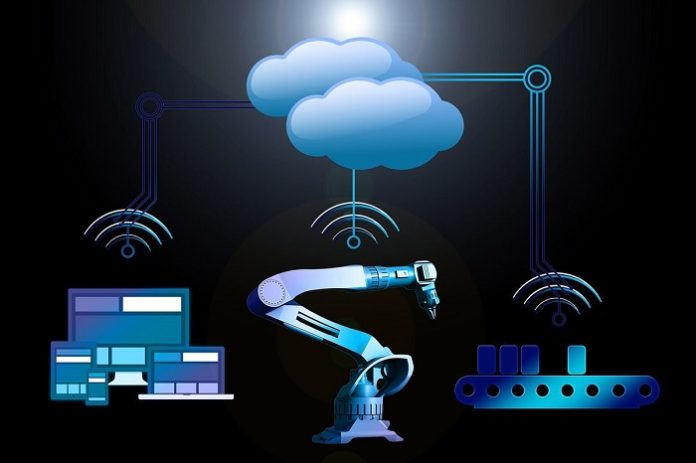Smart manufacturing aims to integrate big data, advanced analytics, high-performance computing, and Industrial Internet of Things (IIoT) into traditional manufacturing systems and processes to create highly customizable products with higher quality at lower costs. As opposed to traditional factories, a smart factory utilizes interoperable information and communications technologies (ICT), intelligent automation systems, and sensor networks to monitor machinery conditions, diagnose the root cause of failures, and predict the remaining useful life (RUL) of mechanical systems or components.
Smart manufacturing, itself is a big umbrella term for the newest technologies like Artificial Intelligence, the Internet of Things, and Machine Learning. In this particular article, we will focus more on Machine learning and its algorithm which are currently in use for various applications like in healthcare, fraud Detection, Virtual assistance, Google Maps, Social Media Platforms, and many other important sectors.
Machine Learning Techniques for Smart Manufacturing
Machine learning is used in various manufacturing fields at various stages such as for future prediction in the manufacturing system, pattern recognition, fault detection, quality control, and monitoring. Machine learning (ML) is used for classification and regression purposes which can be achieved using past data. Machine learning algorithms and combinations of algorithms are widely used in various machining processes.
In recent years, ML has become more prevalent in the building and assembling sectors by using advanced technology to reduce the cost and time involved in production. In Smart assembly manufacturing robots can put items together with surgical precision as technology adjusts errors in real-time to reduce wastage.
The following are Machine Learning Techniques for Smart Manufacturing:-
Quality control and OEE: Machine learning plays a critical role in enhancing Overall Equipment Effectiveness (OEE). The metric measures performance, availability, and the quality of assembly equipment, which are all enhanced with the integration of deep learning neural networks. It quickly learns the weaknesses of such machines and helps to minimize the weaknesses.
Optimized semiconductor manufacturing: According to McKinsey & Company, there is great value in using ML to improve semiconductor manufacturing yields up to 30%. It is believed that it is achievable by reducing scrap rates and optimizing ML operations.
The technology uses root-cause analysis to reduce testing costs through streamlining manufacturing workflows. Also, manufacturing equipment that runs on ML technology is expected to be 10% cheaper in annual maintenance expenses with a reduced 20% downtime and a reduced inspection cost of 25%.
Perfecting the supply chain: ML plays a vital role in improving an organization’s value by maximizing its logistical solutions such as asset management, inventory management system, and supply chain management. The combination of IoT and Artificial Intelligence (AI) is crucial for a modern company to realize the optimal operation of its supply chain.
PWC predicts that more manufacturers will use machine learning and its analytics to enhance predictive maintenance slated to grow by 38% in the next five years. Process automation and visualization are expected to grow by 34% over five years. The integration of APIs, analytics, and big data will grow the connected factories by 31%.
Challenges faced while using Machine Learning for Smart Manufacturing
Today, technology is creating some major security issues, if we are working on a format or platform that is digitally accessible.
Smart manufacturing enabled by machine learning is still a young scientific sector that is growing rapidly. Despite the enormous benefits it has brought to the manufacturing sector, it is still faced with various challenges. We surely have to be a little bit concerned about a few things.
- The complexity of the system: Today, the manufacturing industry is facing an increment of challenges related to complexity and dynamic behaviors while adding that manufacturing is affected by uncertainty. The constant enlargement of big data coupled with its availability poses a great challenge to the manufacturing environment since the knowledge cannot be extracted.
- Security Issues: The interconnection of manufacturing components poses a great risk to the security of the entire processing plant. In cases where robots are working alongside human beings, it could result in exposing them to danger if the robots are compromised.
- Misuse of data: There is a big concern related to the collecting of big data in its privacy, economic value, and security since many organizations store the data in virtual cloud platforms. The misuse of data in the manufacturing sector is on the increase because many devices involved in the process of collecting and examining data are controlled remotely.
- Integration: Manufacturers continue to use old machines because replacing them would be costly, and small industrial manufacturers are unwilling to meet when the existing machinery is working perfectly. If the old machines continue to be in use, it becomes hard to optimize IoT on all manufacturing equipment. Therefore, companies continue to operate in the old era characterized by improper decision-making, high costs of production, prolonged downtimes, and low accuracy.
- Lack of required skills in companies: Bringing the technology of smart manufacturing in a firm is of much importance as possessing the skills to run the technology. If a company is planning to implement smart manufacturing, it must also have the expertise needed to maintain the equipment involved in the process. Since this is a new technology, many manufacturers are faced with the challenge of recruiting new staff with the right knowledge or training the existing staff on the smart manufacturing environment.
Sheeba Chauhan | Sub Editor | ELE Times








